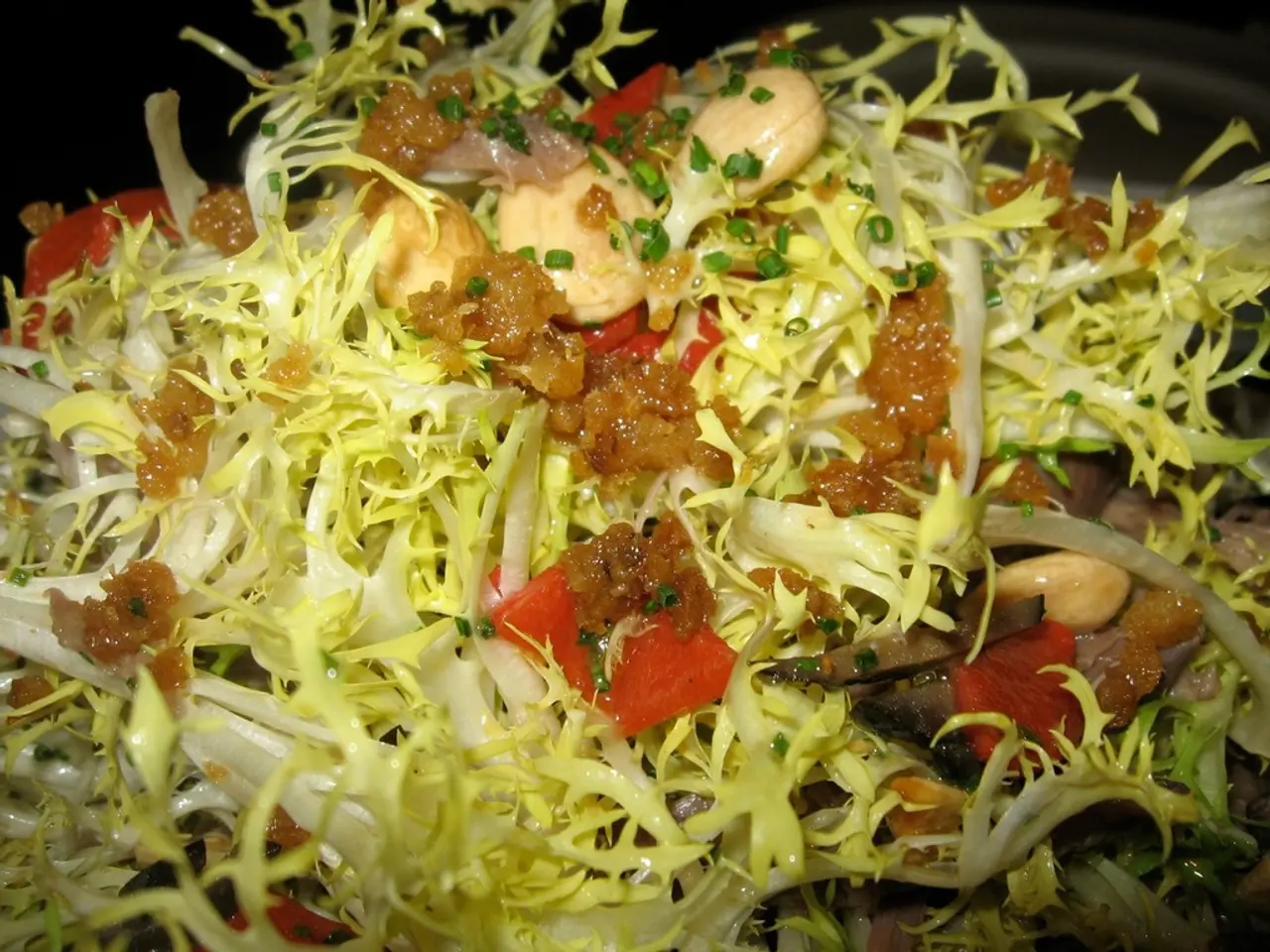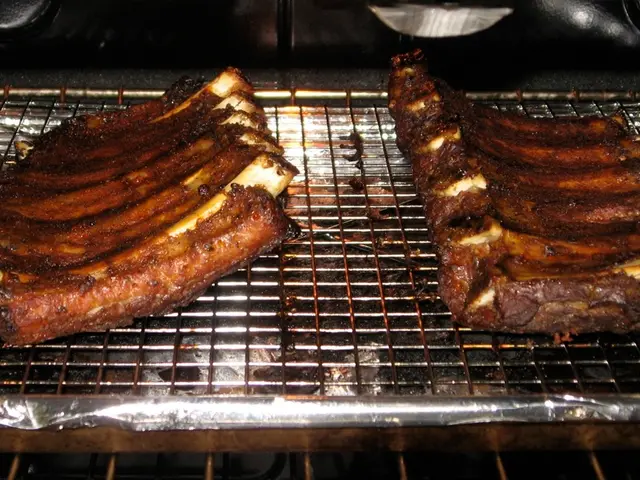Misguided Cooking Oil Choice? A Chef's Insights Revealed
In the world of culinary delights, olive oil stands as a versatile and essential ingredient. It's not just limited to cooking, baking, and finishing; olive oil can be used in creative ways in cuisine.
Extra virgin olive oil, the gold standard, is best enjoyed on salads and fresh vegetables as a finisher or part of a dressing. However, other affordable variations and blends are worth considering for cooking needs. For instance, nutty olive oils are perfect for baked goods, pastas, roasted vegetables, and grilling meats, while peppery olive oils are best for dipping bread or finishing cooked vegetables and meat.
Avocado oil, with its delicate and buttery taste, has one of the highest smoke points, making it ideal for very high-heat cooking or frying, and also excellent raw as a finishing oil. On the other hand, coconut oil, with its distinctive, sweet and tropical flavor, is suitable for cooking, baking, and finishing, especially in desserts or Asian-inspired dishes.
When it comes to frying or grilling at high temperatures, kitchen professionals recommend oils with a high smoke point, such as rapeseed oil, refined sunflower oil, peanut oil, high-oleic sunflower oil, and safflower oil.
Olive oil can be treated like wine, with diverse flavors influenced by fruit, terroir, climate, and pairings. To appreciate the flavor nuances of each olive oil bottle, tastings can be arranged, such as those offered by Allpress Olive Groves on Waiheke Island.
When buying olive oil, freshness, free fatty acids (FFA), taste, and packaging quality are important factors to consider. Quality oils should be sold in dark glass, tin, or opaque containers to protect them from light exposure.
Olive oil blends can enhance or temper flavors, creating unique outcomes. These blends are crafted to offer a harmonious balance of flavors and aromas, making them ideal for a variety of culinary applications, such as drizzling over salads, finishing dishes, or enhancing baked goods.
Moreover, olive oil can be infused with various ingredients like coriander, dark chocolate, tonka bean, bergamot, and lime for unique flavor profiles. Chef Maichol Morandi, for instance, uses olive oil as the protagonist of his cuisine, concocting entire dishes around its wide range of flavor profiles.
In conclusion, olive oil is more than just a cooking staple; it's a culinary adventure waiting to be explored. By considering freshness, free fatty acids, taste, and packaging quality, one can unlock the full potential of this versatile ingredient and elevate their cooking to new heights.
Read also:
- Cheese consumption leads to fatalities for two individuals.
- AI's looming shadow on Mexican small-scale enterprises: how purpose-driven communities can offer salvation
- West Nile virus transmitted by mosquitoes detected in Lancaster County
- "Intel Executive Praises Arrow (Lake) Notebook as Remarkable, Offers Insights into Intel's Future Processors in 2025"








